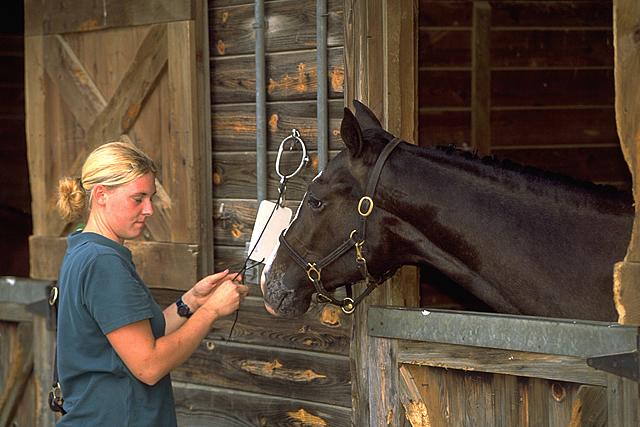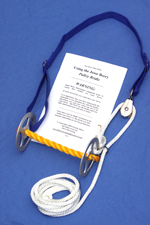 Horseback Riding: Benefits of Horse Ownership
Horseback Riding: Benefits of Horse Ownership
Ever feel the need to justify having horses? While they’re lots of work – it is generally very fulfilling work and enjoyable – especially when you and your horse have built a good relationship.
Anyone who has raised, trained and cared for horses understands this well. What follows is an excellent article from Dr. Depew of the LSU AgCenter. As usual, Dr. Depew gives solid insight and I couldn’t agree more.
Here’s his message:
Horse ownership can be very exciting and rewarding. The primary reasons for horse ownership are companionship, recreation and relaxation, says LSU AgCenter animal science professor Dr. Clint Depew. “Many young people have developed their confidence and self-esteem through horse ownership,” the LSU AgCenter equine expert says, noting that horse projects tend to be a family activity, which yields many benefits because of family interaction. “Horse ownership is a very desirable and positive self-enhancement activity,” Depew says.
The responsibility for daily care and management of the horse comes with horse ownership. Horses need to be groomed, exercised and fed daily. Their stalls and surrounding areas need to be cleaned and maintained.
The initial investment in the horse is only a small portion of the actual cost of ownership Depew points out, cautioning, “When considering the purchase of a horse, weigh the benefits against the cost and responsibilities carefully.” He says before purchasing a horse, it is advisable to take riding lessons and/or work at a riding stable to assess your interest and commitment.
“Spending time with horse trainers and attending horse clinics will give you an opportunity to learn the skills needed to care for horses and evaluate your desire for ownership,” the LSU AgCenter horse expert says, adding, “You should talk to horse owners, trainers and county agents about the cost of maintaining a horse.”
Depew says the average horse will need a minimum of 2 acres of pasture to provide adequate forage to meet its nutritional requirements. Some type of shelter is needed and facilities for tack, feed and hay. A wash area is needed for grooming and a trailer for transportation. By assessing the cost of horse ownership and gaining experience with horses, potential horse owners can make informed decisions about purchasing horses.
When buying a horse, buy a horse that fits the rider and the rider’s goals, Depew advises. For example, it is important that inexperienced riders purchase an older experienced horse to learn on. Older horses generally make fewer mistakes and will tolerate more errors by the rider. Young horses are less predictable, more strong willed and require a more experienced rider.
Generally geldings are steadier and more reliable than mares. If trail or recreational riding is the desired goal, an experienced trail horse should be purchased.
“It is always advisable to obtain professional help when purchasing a horse,” Depew says. Assistance determining the horse’s temperament and ability will require an experienced horseman. Look at the horse several times and in different situations to judge ability and temperament. With good help and a proper evaluation, most errors can be avoided, and a suitable horse can be purchased.
After the purchase, Depew recommends taking regular riding lessons to improve your skill and knowledge. “You will need good equipment and tack to have a safe riding experience,” he says, adding, “Establish a rapport with a veterinarian, a farrier and local trainers to have an appropriate support team for your horse project.” LSU AgCenter parish agents also have information about horse care and feeding.
“If you purchase an appropriate horse and learn to ride and care for your horse correctly, you will enjoy many years of enjoyable horse ownership,” Depew affirms. “Good luck with your horses.”
—————–
Want a great book to get you started?
Take a look at “Horseback Riding: The Complete Beginner’s Guide”.
It teaches all you need to know before you get started in expensive lessons. Hundreds have used it successfully to start learning at home and then will start formal lessons when they have come up to speed.


